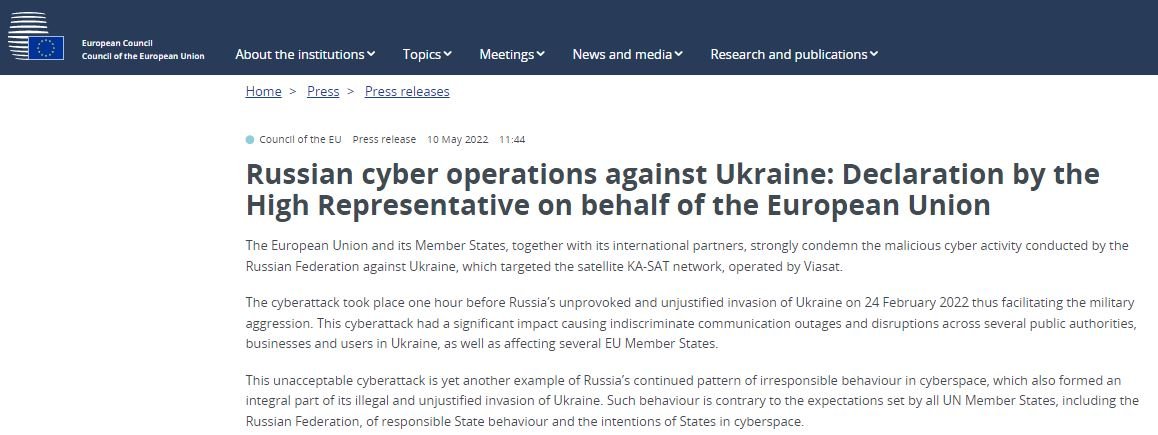Western countries have accused the Russian government of deploying a massive cyberattack against a satellite network just an hour before the start of the military invasion of Ukraine in order to facilitate the advance of its troops.
A report by the British Foreign Office notes that cybersecurity experts from the United Kingdom, the United States and the European Union analyzed the activity in the affected satellite network, concluding that the errors detected are attributable to the activity of the Russian military.

Liz Truss, British Foreign Ministry, mentions: “This is clear and shocking evidence of a deliberate and malicious attack by Russia on Ukraine that had significant consequences for ordinary people and businesses in Ukraine and across Europe.”
This is the first time that the European Union has formally accused the Russian authorities of a hacking campaign, Josep Borrel, head of EU foreign policy, mentions: “Member States, together with their international partners, strongly condemn the malicious cyber activity carried out by the Russian Federation against Ukraine, which targeted the KA-SAT satellite network, operated by Viasat”.
The European bloc says that this incident caused significant disruptions for public and private organizations outside Ukraine, the main focus of the cyberattack. In addition, British authorities have linked Russian hacking groups to the attack that removed a considerable portion of government websites in Ukraine in early 2022.
Last March, several telecommunications providers mentioned that the attack on Viasat, detected in February, disconnected millions of Internet users in France, Germany, Greece, Hungary, Italy and Poland, all in the context of the so-called “special military operation” in Ukraine, ordered by President Vladimir Putin.
Although Russia’s intention was to finish the operation in a couple of weeks, we are about to reach the third month of invasion, which has been reflected in the increase in Russian military assets in Ukraine, displaced civilians and cyberwarfare tactics that could put critical infrastructure at risk in Ukraine and the rest of Europe.
While the conflict has not yet escalated to a continental level, the risk remains latent and will worry European authorities until there are certainties about Russia’s intentions and military activity.
To learn more about information security risks, malware variants, vulnerabilities and information technologies, feel free to access the International Institute of Cyber Security (IICS) websites.
He is a cyber security and malware researcher. He studied Computer Science and started working as a cyber security analyst in 2006. He is actively working as an cyber security investigator. He also worked for different security companies. His everyday job includes researching about new cyber security incidents. Also he has deep level of knowledge in enterprise security implementation.
